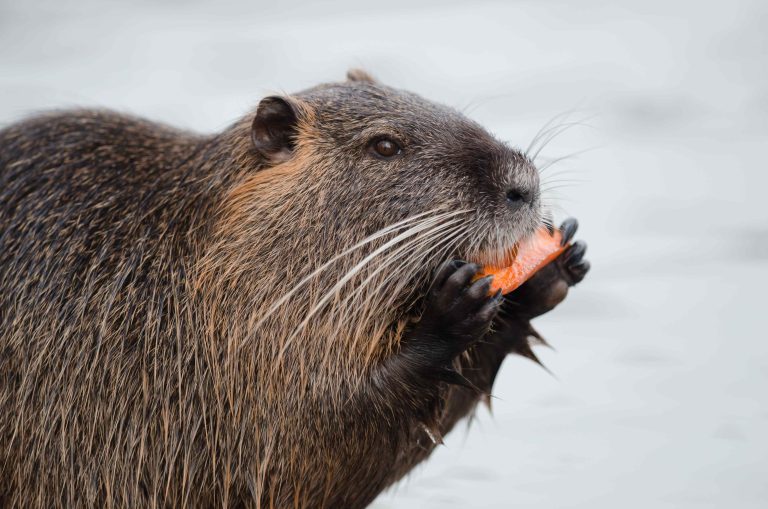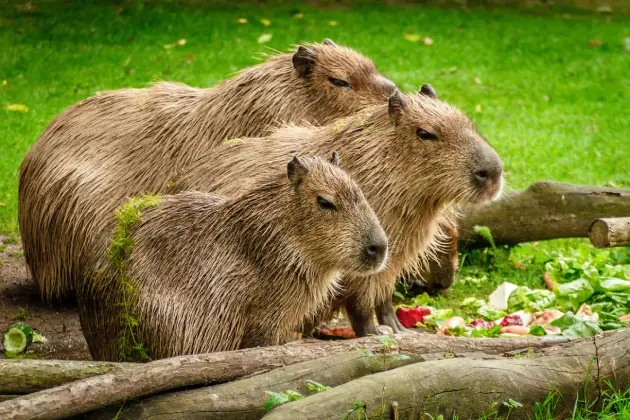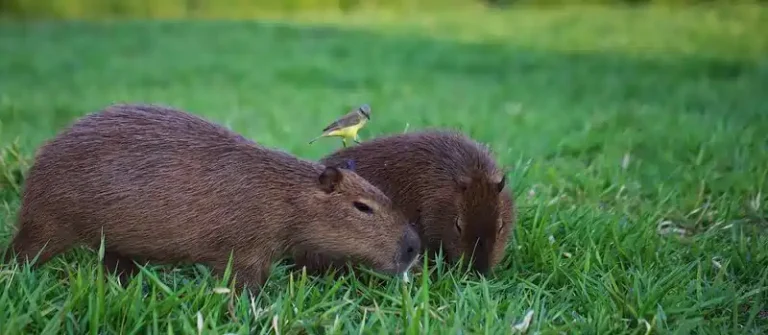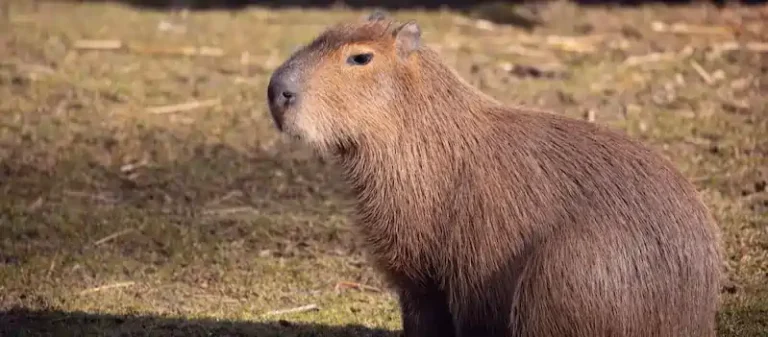
Capybaras are unique, calm, and social animals that many people are choosing to keep as pets. With their gentle nature and friendly demeanor, it’s no wonder they’ve become so popular. However, before you decide to bring one into your home, it’s important to know whether owning a capybara is allowed where you live. If you’re considering owning a capybara in Maryland, there are some things you need to understand about the laws, the care they require, and the responsibilities involved.
What Are Capybaras?
Capybaras are the largest rodents in the world. They are native to South America and are known for their social behavior and calm temperament. These animals are herbivores and spend a lot of time near water. In the wild, they live in groups and enjoy swimming. Their docile nature makes them great companions, but they also require a lot of space and attention to thrive in captivity.
As pets, capybaras can bond closely with their owners. They are affectionate animals, and once they trust you, they may even enjoy being petted and cuddled. However, it’s important to understand that they have very specific needs, and owning one is not the same as owning a more traditional pet like a dog or a cat.
Can You Own a Capybara in Maryland?
If you live in Maryland and are thinking about getting a capybara, you might be wondering if it is even legal to own one. The short answer is that yes, you can own a capybara in Maryland, but there are certain restrictions and requirements that you need to meet.
In Maryland, it is legal to own a capybara as a pet, but it is regulated. Before bringing a capybara home, you must make sure that you meet the legal requirements for exotic pet ownership in the state. This means that you will likely need to obtain a permit from the Maryland Department of Natural Resources (DNR) to legally own a capybara.
Why Do You Need a Permit?
The permit requirement is in place to ensure that capybaras and other exotic pets are kept in safe and humane conditions. The Maryland DNR wants to make sure that anyone who owns a capybara has the knowledge, resources, and commitment to care for the animal properly. Capybaras need a special environment, and it is important to prove that you can provide that.
Things to Consider Before Owning a Capybara
Owning a capybara is not like owning a typical household pet. These animals are large and need a lot of space. They also need regular access to water, as they love to swim and soak in it. Before deciding to bring a capybara into your home, here are a few important things to consider:
Space Requirements
Capybaras are large animals, and they need plenty of space to roam. They are not suited for apartment living or small backyards. You should have a large yard or outdoor space where they can freely move around. A secure enclosure is necessary to keep them safe and prevent them from wandering off.
Social Nature
Capybaras are very social creatures. In the wild, they live in groups, and they rely on companionship for their well-being. If you decide to keep a capybara, it’s recommended to have at least two, as they can become lonely if kept alone. If you cannot get more than one capybara, you will need to be prepared to give them a lot of attention and time to prevent loneliness.
Water Needs
Capybaras love water. They need access to a swimming area where they can cool off and enjoy themselves. A pond, kiddie pool, or large water container is necessary. You will also need to make sure the water is clean and safe for the animal to use.
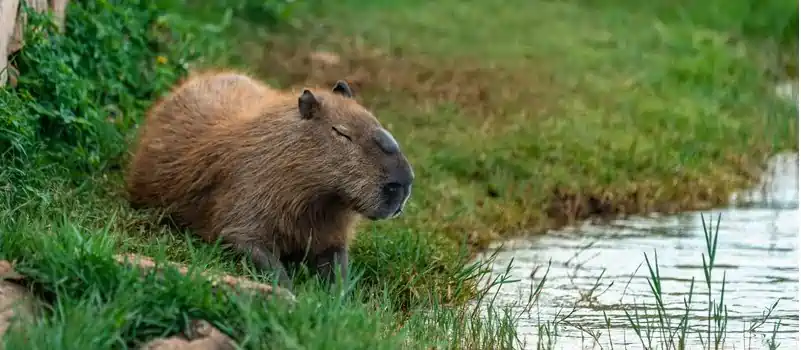
Diet and Health Care
A capybara’s diet is primarily made up of grass, hay, and other plant material. It is important to provide them with a balanced diet to keep them healthy. You may also need to take your capybara to the vet for regular check-ups, especially since they are exotic pets and may require specialized care.
The Permit Application Process
To get a permit for owning a capybara in Maryland, you must contact the Maryland Department of Natural Resources. The process typically involves filling out an application, which may ask questions about your experience with exotic pets, the size of your living space, and how you plan to care for the animal.
Once your application is submitted, the DNR will review your case and determine whether or not you meet the criteria for ownership. They may also conduct an inspection of your property to ensure it is suitable for a capybara. If everything checks out, you will be issued a permit to own a capybara legally.
Costs of Owning a Capybara
Capybaras can be expensive to care for. Not only do you need to pay for the initial cost of purchasing the animal, but there are ongoing costs for food, medical care, and supplies. Building a suitable enclosure for your capybara may also require a significant investment. When you factor in all of these costs, owning a capybara can be a considerable financial commitment.
However, many people find the rewards of owning a capybara to be worth the effort and expense. Their friendly nature and unique personality make them great companions, and they can bring a lot of joy to your home.
Why Should You Own a Capybara?
If you are considering owning a capybara, you may be wondering why anyone would choose this exotic pet over others. Capybaras are affectionate and playful animals that can form deep bonds with their owners. Many people who own capybaras find them to be incredibly rewarding pets. They are gentle and love to be around people, which makes them perfect for families or individuals who have the time to devote to them.
Capybaras are also great for those who enjoy outdoor activities. Since they are semi-aquatic animals, they thrive in environments with access to water. Whether it’s a small pond or a kiddie pool, a capybara will enjoy spending time in the water and can bring a fun, unique dynamic to your outdoor space.
Conclusion
Owning a capybara in Maryland is possible, but it comes with certain responsibilities. Before bringing one into your home, you will need to apply for a permit and make sure you can provide the right environment for your new pet. Capybaras require a lot of space, attention, and access to water, so they are best suited for families or individuals with the resources to care for them properly. At Capybara Pet Info, we hope this guide helps you understand what it takes to own a capybara and whether it’s the right pet for you.
Frequently Asked Questions (FAQs)
1. Is it legal to own a capybara in Maryland?
Yes, it is legal to own a capybara in Maryland, but you must obtain a permit from the Maryland Department of Natural Resources.
2. How much does it cost to own a capybara?
The cost of owning a capybara varies. Initial costs can range from $200 to $500, and ongoing costs for food, medical care, and supplies can add up. You will also need to invest in a proper enclosure and access to water.
3. Can capybaras live alone?
Capybaras are social animals and should ideally be kept in pairs. If kept alone, they may become lonely and depressed. However, they can live alone if they receive plenty of attention from their owners.
4. Do capybaras need a lot of space?
Yes, capybaras require a lot of space to roam and play. They are not suited for small apartments or homes with limited outdoor space.
5. How do I apply for a permit to own a capybara in Maryland?
To apply for a permit, you need to contact the Maryland Department of Natural Resources. The application process involves demonstrating that you can provide proper care and housing for the animal.







